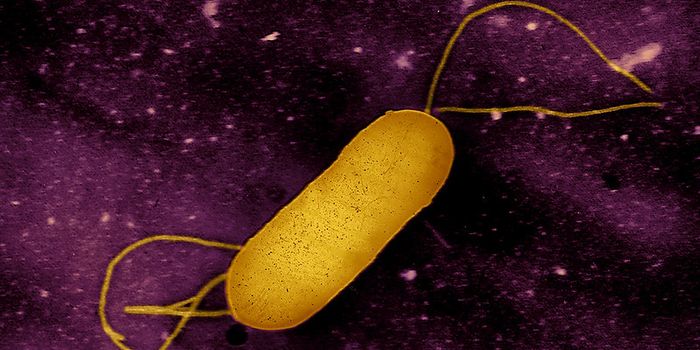Chemical nose sniffs out DNA irregularities
A new study published in the journal Nature Chemistry details the development of a chemical nose that can identify irregular DNA that could suggest breast cancer and other diseases. The nose works by “smelling” out pieces of DNA that are folded abnormally. Study author and UCR chemistry professor Wenwan Zhong explains:
"If a DNA sequence is folded, it could prevent the transcription of a gene linked to that particular piece of DNA. In other words, this could have a positive effect by silencing a gene with the potential to cause cancer or promote tumors." Yet, a folded DNA sequence could also represent a genetic threat. "DNA folds could potentially keep viral proteins from being produced to minimize immune response," Zhong adds.
Zhong collaborated with UCR organic chemistry professor Richard Hooley and his colleagues to design a chemical “nose” capable of detecting folded DNA pieces. The nose is made up of host molecules, target DNA, and fluorescent guest molecules that glow when there are folds in the DNA.
"Humans detect smells by inhaling air containing odor molecules that bind to multiple receptors inside the nose," Hooley explained. "Our system is comparable because we have multiple receptors able to interact with the DNA folds we're looking for."
Having demonstrated that their nose can sniff out DNA fold, Zhong says "Now we think we can do more. There are other three-dimensional structures in DNA, and we want to understand those as well." They may even make the jump from DNA to RNA, she says. "RNA has even more complex structures than DNA, and is more difficult to analyze, but understanding its structure has great potential for disease research."
Sources: Nature Chemistry, Science Daily








